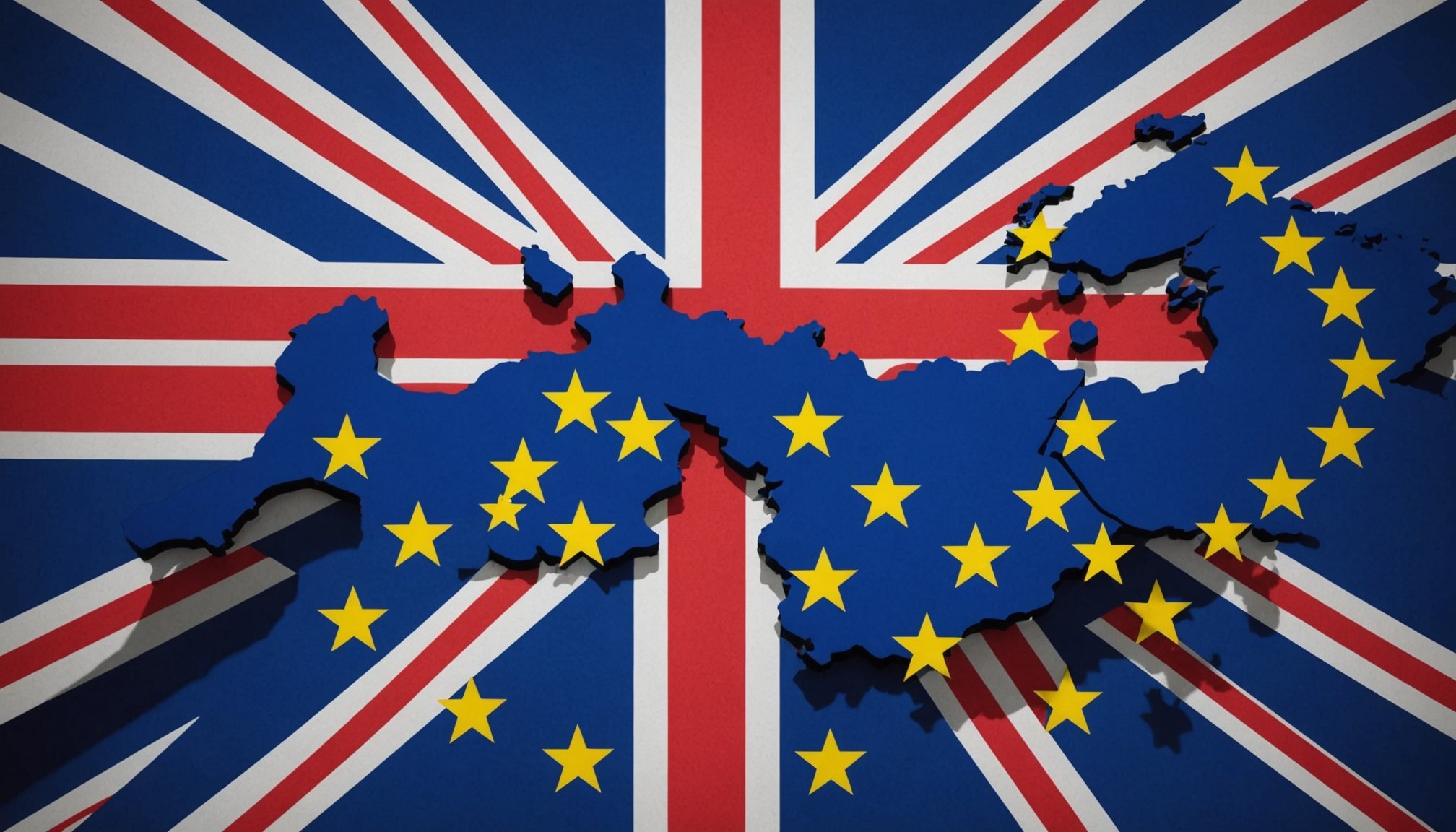Legal Frameworks for Outsourcing IT Services
Navigating legal frameworks outsourcing in the UK requires an understanding of national compliance regulations and international law. Key national legislation like the Data Protection Act and the General Data Protection Regulation (GDPR) influence how businesses manage personal data during outsourcing processes. These laws ensure that companies maintain compliance by safeguarding customers’ personal information.
On the international stage, several treaties and agreements impact outsourcing IT services. Treaties such as the General Agreement on Trade in Services (GATS) facilitate cross-border trade in services, including IT outsourcing. Furthermore, bilateral agreements between countries can create specific pathways for cooperation, easing the legal complexities that often accompany international transactions.
Topic to read : Comprehensive handbook for legally selling your uk business: a step-by-step approach
Non-EU countries each have distinct legal environments that affect IT outsourcing. For instance, in the United States, compliance with regulations like the Health Insurance Portability and Accountability Act (HIPAA) is crucial when outsourcing services that handle sensitive health information. In India, a prominent player in IT outsourcing, the Information Technology Act 2000 outlines the framework for electronic governance and data protection, catering to the needs of foreign clients.
When selecting outsourcing partners, businesses must be keen on understanding these regulations and frameworks to navigate potential legal risks effectively. This informed approach enables secure and law-abiding collaborations, crucial for long-term success in the outsourcing space.
Also to see : Mastering uk legal guidelines: key insights for businesses in the telemedicine industry
Best Practices in Contract Drafting for IT Services
When drafting contracts for outsourcing IT services, including essential elements is crucial to ensure clarity and prevent misunderstandings. These elements often form the backbone of the contract, outlining expectations and responsibilities for both parties.
Start by clearly defining the scope of services, establishing what is expected from the contractor. This should include detailed descriptions of IT service agreements, ensuring every task and deliverable is defined. Service Level Agreements (SLAs) are vital, serving as a tool to describe the specific performance standards the services must meet. SLAs should be explicit in terms of response times, resolution times, and performance indicators, ensuring both parties have a mutual understanding of service expectations.
Avoiding common pitfalls in contract drafting involves paying close attention to language. Vague or overly complex phrasing can lead to complications, often exploiting legal loopholes. Use precise language to mitigate risks and safeguard against legal disputes.
Another best practice includes reviewing outsourcing laws and compliance standards relevant to the jurisdiction of all involved parties. Regular contract audits can adjust terms as laws and technology evolve.
By structuring IT service agreements with these best practices, you ensure the creation of robust, adaptable contracts that minimize risks and maintain clarity throughout the business relationship.
Compliance with Data Protection Laws
Understanding data protection compliance is vital for any UK company considering outsourcing to a non-EU country. The General Data Protection Regulation (GDPR) has far-reaching implications for businesses, setting stringent legal requirements on how personal data must be managed. UK companies outsourcing to countries outside of the EU must ensure adequate safeguards are in place to protect personal data as per GDPR standards.
GDPR Implications for Outsourcing
The GDPR mandates that companies maintain strict control over personal data, applying not only to EU-based entities but also to any company handling EU citizens’ data. This impacts how UK businesses engage with international partners. Failure to comply can lead to significant penalties, emphasizing the importance of GDPR considerations in global outsourcing strategies.
Alternative Compliance Standards
Different countries may have their own data protection laws, which UK companies must consider. Aligning with these local legal obligations can involve adopting recognised international standards such as ISO certifications or binding corporate rules.
Strategies for Data Protection Compliance
To ensure compliance, companies should:
- Conduct thorough due diligence on potential partners
- Implement robust data processing agreements
- Regularly audit data protection practices to maintain adherence to both GDPR and local legal obligations.
These strategies help mitigate risks and uphold data protection compliance regardless of outsourcing geography.
Risk Assessment and Management in Outsourcing
In the world of outsourcing, identifying and managing risks is pivotal. Outsourcing presents several potential risks, such as legal and operational challenges that can impact business continuity and efficiency. For effective risk management outsourcing, it’s crucial to create a comprehensive risk assessment framework before entering any contract.
Mitigation strategies play a significant role in controlling these risks. One approach is developing an in-depth understanding of potential legal issues. Companies should carefully review contractual terms and ensure compliance with all relevant regulations to avoid litigation and penalties.
In terms of operational risks, evaluating the capabilities and reliability of third-party vendors is crucial. Establishing clear communication channels and regular performance reviews can mitigate issues related to service delivery and quality.
Risk management frameworks tailored for IT outsourcing need to focus on cybersecurity threats. Implementing robust data protection measures and encryption protocols is essential to safeguard sensitive information.
Moreover, the role of insurance and indemnities cannot be overstated. Insurance policies provide a financial buffer against unforeseen events, while indemnity agreements transfer specific risks from one party to another. Including these elements in outsourcing contracts is a strategic way to enhance overall protection and ensure business resilience.
Case Studies and Successful Outsourcing Examples
Examining outsourcing case studies in the UK offers valuable insights into establishing successful IT partnerships. These examples demonstrate how careful planning and strategic collaboration can yield remarkable results.
One notable case involved a UK retail company that successfully outsourced its IT department to a service provider. The successful IT partnerships hinged on clear communication and detailed contracts, aligning both parties’ objectives. Regular check-ins and adjustments ensured the partnership remained mutually beneficial.
Several factors contributed to the success of such partnerships. First, precise alignment of goals between the company and the service provider is essential. Clearly defining roles, responsibilities, and expectations ensures a smooth workflow. Second, maintaining open communication channels is crucial. Effective communication prevents misunderstandings and fosters trust, which is vital for resolving arising issues swiftly.
Lessons learned from these case studies emphasize the importance of flexibility. While rigid structures can impede progress, a degree of adaptability allows partnerships to respond dynamically to changing circumstances. Moreover, conducting thorough initial research to select a capable service provider is critical.
Best practices derived from these experiences include establishing a comprehensive evaluation process for potential partners and investing in long-term relationship management. By adopting these practices, companies can significantly enhance the probability of successful outsourcing engagements.
Country-Specific Regulations for Outsourcing
Understanding country-specific regulations is crucial when considering outsourcing beyond the European Union. Different countries have unique compliance requirements that can greatly impact your strategy.
In the United States, outsourcing compliance involves adhering to various federal and state data privacy laws, such as the California Consumer Privacy Act (CCPA). These local laws necessitate detailed knowledge of data protection measures. Similarly, India, a popular outsourcing destination, enforces regulations through frameworks like the Information Technology Act, which mandates stringent data security practices.
The regulatory environment in China presents an entirely different set of challenges. China’s Cybersecurity Law imposes rigorous data localization requirements, thus affecting how foreign companies handle data. Navigating these local laws effectively requires a comprehensive understanding of each country’s legal landscape.
To manage outsourcing compliance effectively, companies must develop strategies tailored to individual countries. One approach is to consult local legal experts who are well-versed in these regulatory environments. Additionally, internal compliance teams should regularly update their understanding of global regulations to mitigate risks.
When comparing regulatory environments across countries, it’s clear that the complexity and enforcement levels vary significantly. This necessitates a thorough comparative analysis to tailor outsourcing agreements appropriately and ensure full compliance with each jurisdiction’s requirements.











